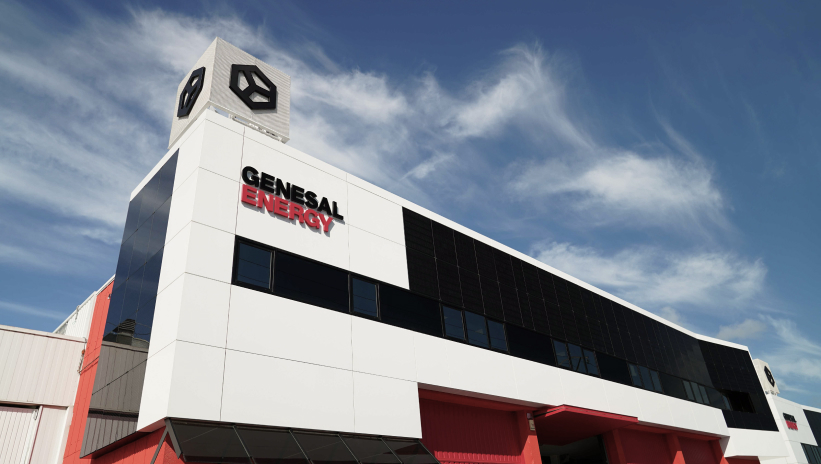Keys to effective industrial decarbonisation: The Genesal Energy Experience.

Decarbonisation in industry is not just about technology: it’s about acknowledging operational complexity and the need to combine multiple solutions. Genesal Energy knows this well. That’s why we chose to take action.
Our renovation of units B27 and B28 at the Bergondo industrial estate (A Coruña) is a real example of how to integrate concrete, measured, and coordinated efforts to move towards a more sustainable industry.
Producing renewable energy is not enough, you also need to manage it properly.
In recent years, we’ve taken an active role in the energy transition, convinced that decarbonising our processes is not a choice but a responsibility. However, we are under no illusion: the path is not easy. Challenges are high energy consumption, demanding technical processes, and above all, the need to ensure uninterrupted operational continuity. We understand there is no single solution or magic formula. Every industry is different, and every step matters.
In our case, the first step was analysis. We studied our energy consumption, losses, thermal demand, and the renewable potential of our facilities in depth. Based on that data, we designed an intervention around four pillars:
- Integration of renewable energy
- Smart energy management
- Recovery of energy flows
- Overall efficiency improvement

For renewable generation, we chose to integrate the solution into the architecture of our buildings. We installed 111 sq metres of photovoltaic glass with a capacity of 13.1 kWp directly into the façades, allowing us to generate clean energy while also improving thermal insulation. This was complemented by a 252 m² photovoltaic roof (57.3 kWp) on unit B27. Thanks to these installations, we now cover 100% of the energy consumption of both units during peak solar hours.
But producing renewable energy is not enough, you also need to manage it properly. That’s why we incorporated the OGGY, an advanced energy storage and management system that monitors usage in real time and automatically determines the most efficient use of the available energy. This system helped us reduce consumption by 27% in just one year.
There is no single solution or magic formula. Every industry is different, and every step matters.
We went one step further: we began recovering the energy generated during genset testing (FATs). Thanks to its integration with OGGY, that energy is fed back into the system, further reducing our dependence on the electricity grid.
The results came quickly: in the first year, we avoided more than 23 tonnes of CO₂ equivalent emissions. Our facilities also improved their energy certification, moving from a rating of “E” to “B”. An improvement that reflects not just efficiency, but a genuine commitment to sustainability.

This project has shown us that industrial decarbonisation is not achieved through isolated grand gestures, but through concrete, measurable, and coordinated actions. It requires vision, strategy, and the ability to adapt solutions to the specific needs of each operation. And above all, it requires commitment.
Genesal Energy is clear on this: we’ll keep moving forward.











